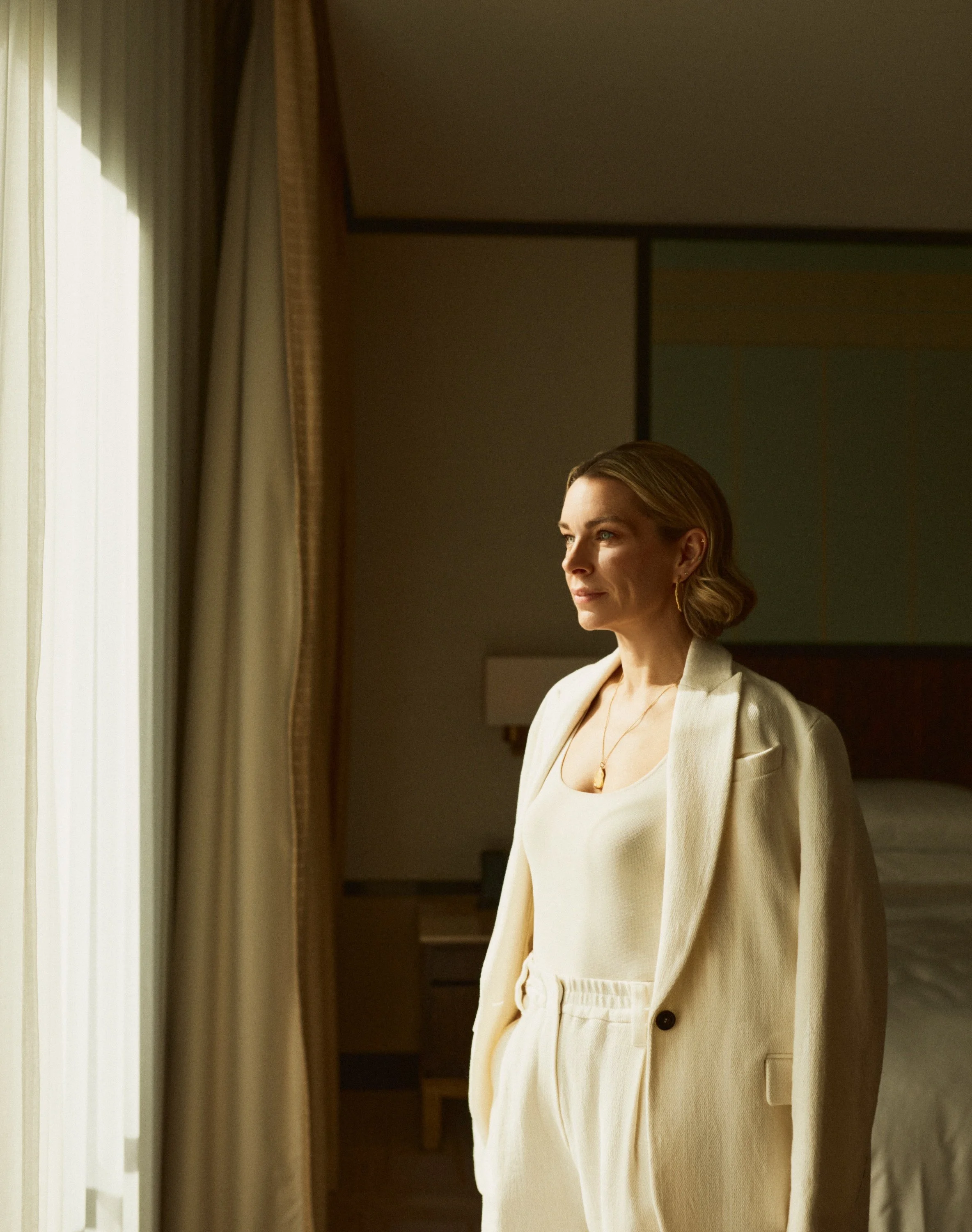
Love, sleep, money, sex, worry, chaos, joy, work, friends, stretch marks, conception, piles, pads, boobs, bottles, c-sections… and mental health.
This is Also Motherhood.
Welcome to a new era of parenthood.
Trigger Warning
Trigger Warning
Some of the stories in this book may be difficult to read, hear, or see. They reflect the lived experiences of women, birthing people, and families across our society, and it is important that these voices are heard. However, if any of them bring up difficult memories or feelings for you, support services are listed on the Find Support page and on the Maternal Mental Health Alliance website.
See, read and listen to 10 stories of motherhood, mental health, strength and survivial.
-
![]()
Catherine
Catherine’s story of postpartum psychosis.
-
![]()
Karah
Karah’s story of hyperemesis gravidarum and mental health.
-
![]()
Laura
Laura’s story of neurodiversity and navigating mental health during and after pregnancy.
-
![]()
Geeta
Geeta’s story of birth trauma, injury and her mental health.
-
![]()
Natalie
Natalie’s story of perinatal OCD and intrusive thoughts as a young mother.
-
![]()
Tessa
Tessa’s story of TFMR (termination for medical reasons) and the impact on her mental health.
-
![]()
Abi
Abi’s story of a perinatal eating disorder.
-
![]()
Laura-Rose
Laura-Rose’s story of conception, birth trauma and mental health as a queer woman.
-
![]()
Anna
Anna’s story of complex fertility and mental health during pregnancy.
-
![]()
Raiye
Raiye’s story of young motherhood and suicidality.
Buy the book.
-
It all begins with an idea. Maybe you want to launch a business. Maybe you want to turn a hobby into something more.
-
It all begins with an idea. Maybe you want to launch a business. Maybe you want to turn a hobby into something more.
-
It all begins with an idea. Maybe you want to launch a business. Maybe you want to turn a hobby into something more.
Rewriting Parenthood
People asked me if I had any expectations about becoming a father and I’m not sure if I truly did but I did know I was up for the challenge and determined for this role to be my best one yet.
However, a few months in, I experienced a shift in my mental health that caught me off guard. I didn’t know what was wrong, but I knew I wasn’t ok.
Intimate. Emotional. Rewarding. Convenient. There are plenty of words I could choose to describe breastfeeding my first daughter. But ‘natural’ isn’t one of them. As I learnt so painfully when I struggled to breastfeed my second and found myself paralysed with guilt. If breastfeeding works for you and your baby, then great. Stick your breast pads in your bra and go forth and lactate. But realise you’re one of the lucky ones.
I made it my mission to do better as a midwife: to listen, to recognise, and to advocate for those enduring HG. I’ve met countless women whose experiences mirror my own: scared, trembling, apologising for being “dramatic,” clutching their makeshift sick bowls while being told to sip ginger tea. Every time I hear that advice, I remember lying there, wondering what was happening to me and why I couldn’t seem to cope like everyone else. That guilt is one of the cruellest side effects of this pregnancy-related illness.
Medical professionals called my experience a “late miscarriage.” But that term didn’t, and still doesn’t, capture the depth of my loss. It felt clinical and dismissive. I had given birth. I had held my baby. I had lost him. Language matters, and the words we use can either validate or diminish someone’s experience.
Then came the phrase I heard again and again: “At least you can get pregnant.” It was meant to comfort, but it carried the wrongful assumption that another pregnancy would be easy, and that it would somehow heal me.
This is a phrase that pregnant women often hear in the workplace in the lead up to maternity leave, which infuriates me personally and professionally, as both a mother who struggled immensely with new parenthood, and a researcher with an interest in transitions to parenthood and employment.
For true health let’s think sustainable rather than super-fast. How we feel first and the results will come. Knowing that postnatal recovery takes time. Your body is beautiful exactly as it is. Stretch marks, wrinkles, rolls, scars and all. Each one a testament to the beautiful and life changing journey of motherhood. Remembering that we should always prioritise moving from a place of honouring our body rather than exhausting it.
But even if we did make a choice, motherhood isn’t a neat and tidy, one-size-fits-all experience. One that locks us into a lifetime of permanent bliss. It’s an ongoing, complex and ever-changing reality. One that brings just as much joy and beauty as it does relentless challenge and chaos.
And pretending otherwise is costing us.
When I found out I was pregnant with Leo, I was overjoyed - but also terrified. I’d miscarried just months earlier, and that grief lived in my body. Even as I tried to focus on the miracle, I couldn’t shake the anxiety that something might go wrong. At the same time, everyone around me - doctors, midwives, family - reassured me I was young, fit, healthy, and “low risk.”
That phrase was repeated to me again and again. It was meant to soothe me, but it also silenced me.
As the days passed, I began to realise that more than just my physical body had been broken. I was going through the motions, but I felt disconnected. I hadn’t bonded with my son in the way I had imagined. I kept asking myself, 'Why am I not feeling the love I fantasised about?' I wanted to breastfeed - it felt like the one thing I could control - but even that wasn’t working.
I was deeply afraid of being judged. I didn’t recognise myself. And slowly, postnatal depression crept in.
I’m never far from judgement though and the persistent myth that a good mum shouldn’t want time away from her children. Whether it’s choosing to go on our honeymoon just the two of us, not taking Stanley (my 2.5-year-old joy) on a three-day, work-packed trip to South Africa, or simply letting him spend time with his grandparents, there’s always someone trying to shame me.




















